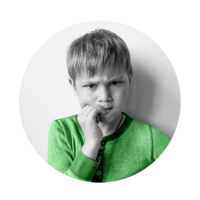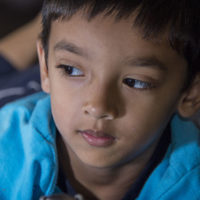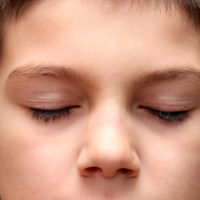Cognitive Training
-

Social connectedness is a protective factor against short-term suicide attempts (post discharge) in school children
Researchers in the USA have performed a multi-site, prospective analysis of >2,000 adolescents aged 12-17 years to try to determine the short-term predictors of suicide attempts within 3-months of an emergency department visit. The study population was enriched to include a high proportion of adolescents at risk for suicide attempts.
Read more -

Suicide and Self-harm National Conference
Dr. Dennis Ougrin explains more about his session at our National Conference on Suicide and Self Harm.
Read more -

Effective prevention of suicidal behaviours in adolescents – from targeted treatments to firearms restriction – Professor Lars Mehlum
Professor Lars Mehlum at the launch of the JCPP Special issue 2019 – Suicide and self-harm. Lars looks at ‘Effective prevention of suicidal behaviours in adolescents – from targeted treatments to firearms restriction’
Read more -

Biological explanations of links between childhood adversity and later self-harm: a focus on inflammation – Dr. Abigail Russell
Dr. Abigail Russell at the launch of the JCPP Special issue 2019 – Suicide and self-harm. Abby looks at ‘Biological explanations of links between childhood adversity and later self-harm: a focus on inflammation’
Read more -

Intellectual Disability, Challenging Behaviour and the Role of Communication
An exciting opportunity to hear from leading expert Dr. Vicky Slonims discussing the Intellectual Disability, challenging behaviour and the role of communication. About the Speaker Vicky is Senior Consultant Speech and Language Therapist in the multi-disciplinary service for children with neurodevelopmental disorders at Evelina Children’s Hospital (Guy’s and St Thomas NHS Foundation Trust). She is […]
- Event type
- SIG
- Location
- London
-

Autism Masterclass
Mental health problems commonly co-occur with ASD, yet these problems often go untreated. This Masterclass offers both clinicians and researchers the opportunity to update their knowledge of the evidence-base and its implications for best-practice. This CPD training day is part of ACAMH’s ‘Masterclass Series’. The ‘Masterclass Series’ delivers advanced, evidence-based training for those working in […]
- Event type
- Masterclass
- Location
- Bolton
-

Dialectical behaviour therapy for adolescents: a comparison of 16-week and 24-week programmes delivered in a public community setting
Clinicians in CAMHS across Ireland have sought training in DBT-A to treat the increasing number of adolescents presenting to their services with self-harm and/or suicidal behaviour. With a growing national interest in DBT provision in community services, the National DBT Project Ireland was established in 2013 to coordinate training and implementation of DBT (in both adult and child/adolescent services) in the Irish public health service.
Read more -

Help yourself (but get some support): meta-analysis of self-help interventions for children
We know that poor mental health in childhood is associated with poorer quality of life, increased likelihood of having a mental health disorder in adulthood and poorer occupational and social outcomes. We also know that there are numerous effective interventions for mental health problems, with over 750 treatment protocols for evidence-based psychological treatments in children. However, demand for treatment outstrips supply.
Read more -

Cognitive processes mediate the post-traumatic stress trajectory in adolescents
A new study has shown that cognitive processes shape the early reactions of children and adolescents to traumatic stressors, and mediate the transition to persistent and clinically significant post-traumatic stress symptoms (PTSS).
Read more -

Mindfulness-based interventions improve depression and anxiety outcomes in youths
In 2019, Darren Dunning and colleagues compiled a Research Review for the Journal of Child Psychology and Psychiatry in which they evaluated, for the first time, the efficacy of MBIs on cognition and mental health in adolescents <18 years-of-age.
Read more